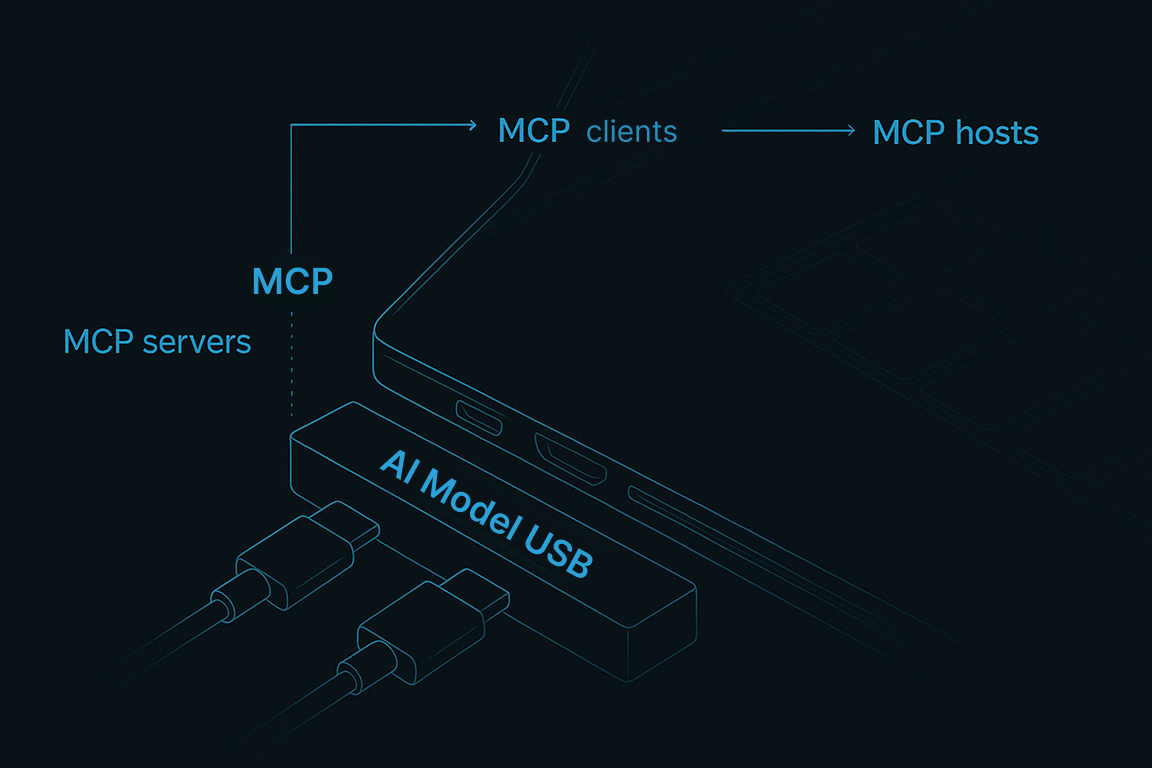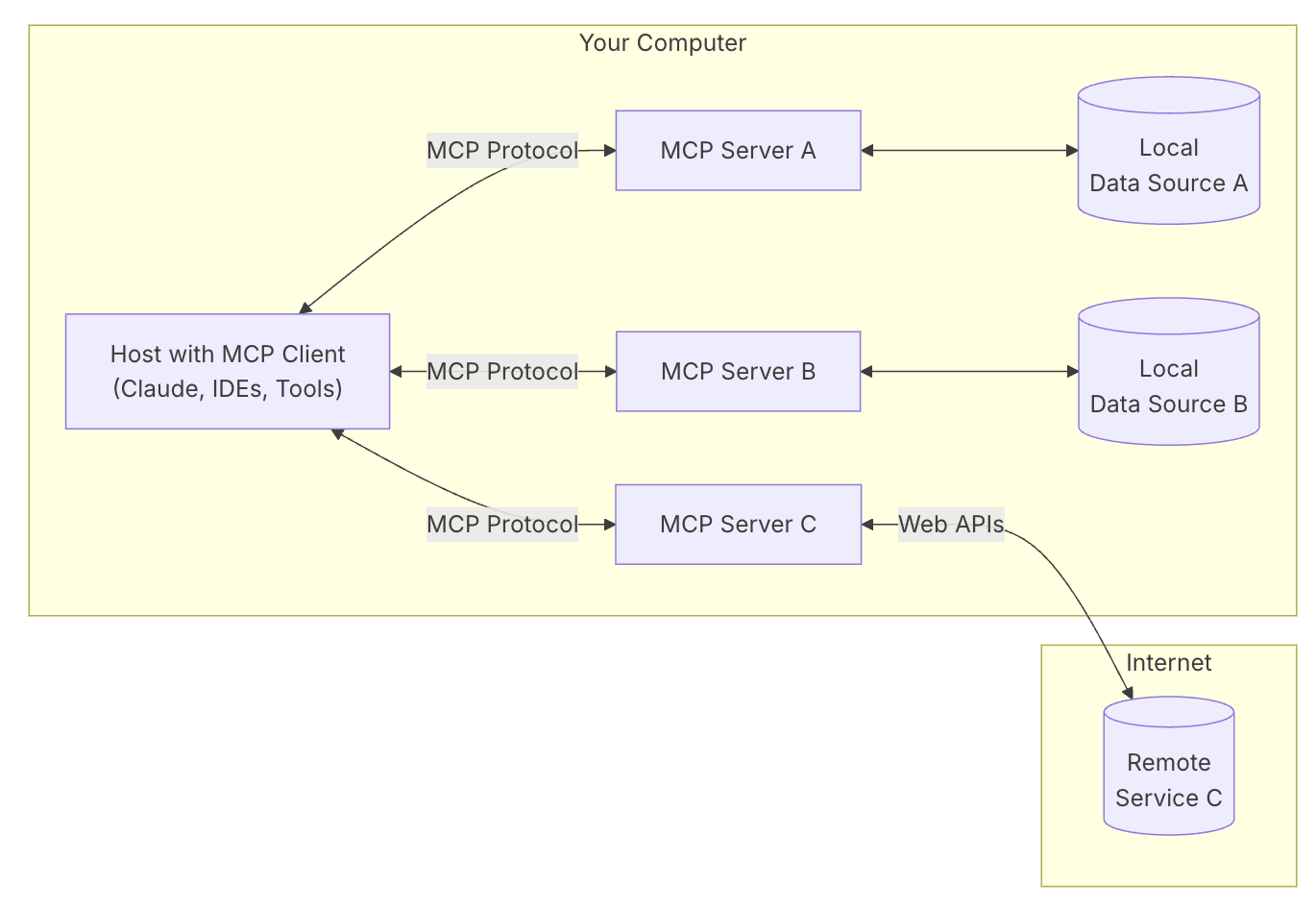💻MCP : AI Model's 'USB'
What is MCP
MCP(Model Context Protocol) is an open source standard and architecture that aims to help AI models connect data and tools much efficiently.
MCP is released by Anthropic on Nov 25, 2024, and open-sourced. Anthropic is the parent corporation of a popular AI model called Claude.
Why MCP
Considering MCP as AI model's 'USB' can simplify the understanding of MCP.

Imagine a scenario where you want to connect a keyboard, mouse or other peripherals to your computer or laptop. You just need to plug these peripherals into your computer's USB port. This is so simple because USB is at work.
USB(Universal Serial Bus) sets the standard for digital transmission and power delivery between many types of electronic devices.
Any electronic devices that support USB can be connected by a host. This can enlarge the capabilities of devices such as computer.
Users want to solve the real problems with AI model, not just to chat and get some content from it.
- 1.Tell me the weather of Los Angeles in 7 days
- 2.Create a excel sheet for me
- ......
Facing these real and complicated tasks, AI models will be stuck due to a lack of data and access to applications such as web search or Excel.
If there is a 'USB' for AI models, the situation will be different. An AI model can connect data and tools easily, and decide when and how to use data or tools using its reasoning capability.
MCP is designed to carry out that responsibility as an AI model's 'USB'.
Main Concepts of MCP
- MCP Hosts: AI applications like ChatGPT, Claude Desktop. These applications provide the portal/interface for users to interact with AI model. These applications can be considered as 'computers' that other peripherals need to plug into.
- MCP Clients: One-to-one connection created by AI applications with MCP Servers when executing the tasks.
- MCP Servers: Programs expose specific capabilities through the standardized Model Context Protocol. These are the core components that enables AI model to completes users' tasks.

Function Calling V.S. MCP
Before MCP, venders provided the 'Function Calling' feature in the API offering a method to add tools and data to AI model.
There are still some problems:
- 1.Different APIs may have different definitions of 'function calling'
- 2.Tools can't be reused or available for others
here is a sample of function calling from OpenAI'S API paltform.
import { OpenAI } from "openai";
const openai = new OpenAI();
const tools = [{
"type": "function",
"name": "get_weather",
"description": "Get current temperature for a given location.",
"parameters": {
"type": "object",
"properties": {
"location": {
"type": "string",
"description": "City and country e.g. Bogotá, Colombia"
}
},
"required": [
"location"
],
"additionalProperties": false
}
}];
const response = await openai.responses.create({
model: "gpt-4.1",
input: [{ role: "user", content: "What is the weather like in Paris today?" }],
tools,
});
console.log(response.output);
Suppliers can offer their services through MCP, and users can seamlessly integrate and use the services in their applications that support MCP. Many MCP stores have sprung up after MCP.
Challenges for MCP
There may be challenges for MCP:
- 1.The number of applications supporting MCP which determines MCP's overall utility and impact
- 2.The coming of other standard protocols which may substitute MCP